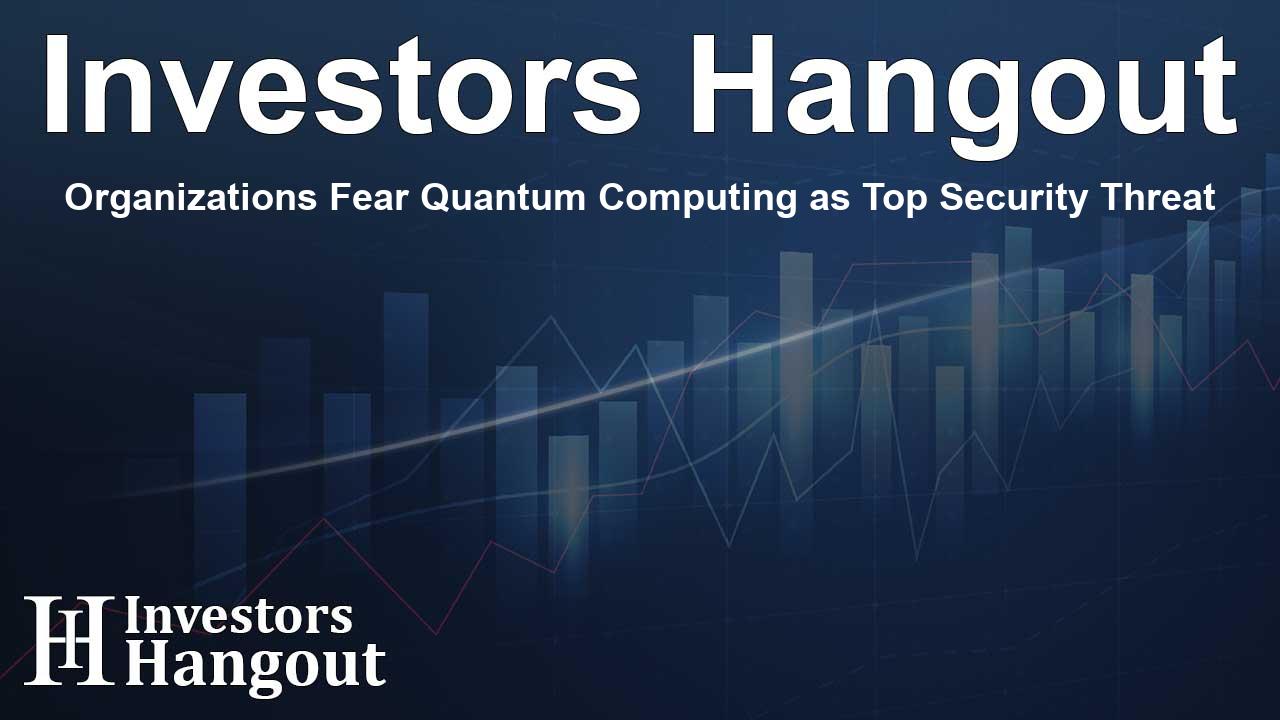Organizations Fear Quantum Computing as Top Security Threat

Understanding the Quantum Computing Threat
Organizations globally are facing a seemingly insurmountable challenge as they assess the implications of quantum computing on cybersecurity. A recent study reveals that nearly two-thirds of organizations view quantum computing as a critical threat that could emerge in the next few years. The fears stem from quantum computers' potential to render current cryptographic systems obsolete, posing significant risks to data protection.
Predictions for Quantum Readiness
Six in ten early adopters of quantum-safe technologies anticipate a pivotal moment, often referred to as ‘Q-day,’ when quantum computers could effectively breach many of the encryption systems in place today. This forecast is alarming, as it indicates that organizations have a limited window to adapt before they potentially face breaches on a grand scale.
Industry Concerns About Cybersecurity
The Capgemini Research Institute's insights highlight that approximately 65% of surveyed organizations are particularly worried about ‘harvest-now, decrypt-later’ attacks. These attacks could compromise sensitive data acquired now, which could be decrypted once quantum computing capabilities advance. As awareness heightens, many organizations still underestimate quantum threats, risking future data breaches and compliance issues.
Expert Insights on Quantum Safety
Marco Pereira, the Global Head of Cybersecurity at Capgemini, emphasizes the importance of being proactive in this domain. He notes that quantum readiness isn't merely a matter of predicting when these advanced quantum attacks will occur. Instead, it revolves around effectively managing irreversible risks to ensure that all encrypted data remains secure.
Adopting Post-Quantum Cryptography Solutions
The survey results indicate a favorable trend among organizations leaning towards post-quantum cryptographic (PQC) algorithms to safeguard their systems. Roughly 70% of respondents are already taking steps toward this strategic shift, aiming to mitigate the near-term risks posed by quantum computing advancements. This inclusive approach provides a balanced solution to maintain data security while anticipating future challenges.
Challenges Facing Organizations
While many are heading toward quantum safety, there is a significant number of organizations—about 30%—that are still ignoring the urgency of the quantum threat. This reluctance often stems from inadequate budget allocations and a shortage of dedicated personnel to manage the cryptographic transition effectively.
The Way Forward
In light of these emerging trends, businesses must prioritize planning and implementing post-quantum protections. The need for these solutions is only set to increase as regulatory pressures mount alongside technological advancements. Organizations that respond proactively will not only enhance their cybersecurity posture but also position themselves favorably against future threats.
Industry Leaders Set the Example
High-risk sectors, such as defense and finance, are at the forefront of adopting quantum-safe measures, whereas consumer-driven industries are lagging. This suggests a pressing need for education and awareness across sectors to ensure that all organizations recognize and act upon the imminent quantum challenges.
Conclusion
As quantum computing technology evolves, it presents both risks and opportunities. While the challenges are significant, businesses have the power to turn these threats into a competitive advantage through early adoption of PQC solutions. This approach ensures not only compliance with future regulations but also safeguarding vital data against the ever-looming challenge posed by advancing quantum technology.
Frequently Asked Questions
What is quantum computing?
Quantum computing is a revolutionary technology that utilizes quantum mechanics to process information much more efficiently than classical computing. This capability poses potential risks to current encryption methods.
Why is 'Q-day' significant?
‘Q-day’ refers to the time when quantum computers will be powerful enough to break existing cryptographic algorithms, potentially exposing sensitive information.
What are ‘harvest-now, decrypt-later’ attacks?
These attacks involve collecting encrypted data now, with the aim of decrypting it later when quantum technologies can render current security measures ineffective.
How can organizations prepare for quantum threats?
Organizations can enhance their cybersecurity by adopting post-quantum cryptographic solutions and proactively assessing their readiness against quantum computing risks.
What role does Capgemini play in addressing cybersecurity challenges?
Capgemini is a leader in providing innovative cybersecurity solutions and strategies, helping organizations navigate the complexities of digital transformation and emerging threats.
About The Author
Contact Dominic Sanders privately here. Or send an email with ATTN: Dominic Sanders as the subject to contact@investorshangout.com.
About Investors Hangout
Investors Hangout is a leading online stock forum for financial discussion and learning, offering a wide range of free tools and resources. It draws in traders of all levels, who exchange market knowledge, investigate trading tactics, and keep an eye on industry developments in real time. Featuring financial articles, stock message boards, quotes, charts, company profiles, and live news updates. Through cooperative learning and a wealth of informational resources, it helps users from novices creating their first portfolios to experts honing their techniques. Join Investors Hangout today: https://investorshangout.com/
The content of this article is based on factual, publicly available information and does not represent legal, financial, or investment advice. Investors Hangout does not offer financial advice, and the author is not a licensed financial advisor. Consult a qualified advisor before making any financial or investment decisions based on this article. This article should not be considered advice to purchase, sell, or hold any securities or other investments. If any of the material provided here is inaccurate, please contact us for corrections.
